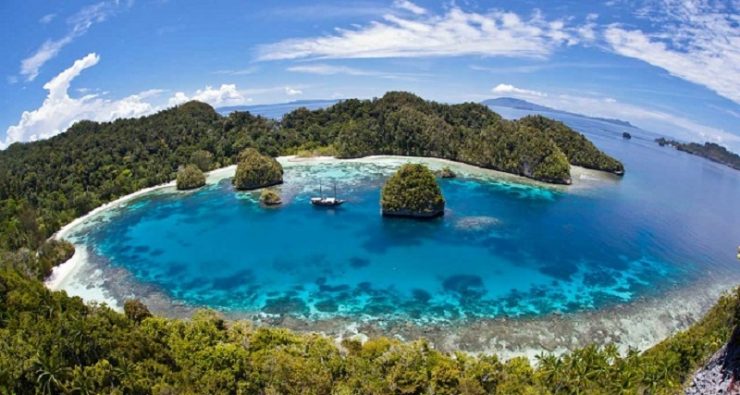THE coronavirus (COVID-19) pandemic has severely affected the tourism industry in Raja Ampat District in the Indonesian province of West Papua.
According to head of the Indonesian Tourist Guides Association (PHI), Raja Ampat chapter, Ranny Iriani Tumundo said the current COVID-19 outbreak has kept tourists away from Raja Ampat, with no arrivals recorded so far. As a result, 184 tourist guides have lost their jobs since March this year.
“The loss of jobs has posed financial problems for tourist guides. Tourist guides were making a living by offering their services to visiting travelers. But, the COVID-19 outbreak has put a halt to tourist inflows, partly owing to the enforcement of travel restrictions to contain the coronavirus pandemic,” Tumundo noted.
He added that the out-of-job tourist guides are members of PHI, and 80 percent of them are married with children. To feed their families, many of them have tried to find new jobs, but they are not easy to come by amid the ongoing health crisis. Several tourist guides survived the COVID-19 situation thanks to their businesses, he said, adding that the coronavirus crisis is a global disaster.
“We all pray for God’s mercy. May this storm vanish soon so that our tourism industry can run again. For all members of PHI, please stay healthy, and follow the COVID-19 preventive measures,” he averred.
Raja Ampat is ofte, he continued called “Heaven on Earth”, “Miracle of Papua”, “Underwater Paradise on Earth”, or “Real Wonder of the World” for its mesmerizing marine panorama. The district has a geopark that is touted to be more beautiful than the one in Halong Bay, Vietnam.
Tumondo pointed out said in 2012, Raja Ampat was included in the list of Real Wonders of the World. It has been recognized as one of the world’s 10 most beautiful diving sites, and rated number one for its rich marine flora and fauna diversity.
Raja Ampat District has around 1,700 islands, including the Isle of Wayag, which is made of karst or limestone from other isles. The waters of Raja Ampat have approximately 603 hard coral species, representing 75 percent of the total coral reefs in the world, according to information posted on rajaampatlodge.com.
Based on various studies by global natural conservation agencies, such as Conservation International and Nature Conservancy, Raja Ampat’s waters are estimated to host 1,397 fish species. The waters of Raja Ampat are also called “Capital for Fish in the World”.
There are also 60 varieties of crayfish, 699 types of soft animals or species of mollusks, comprising 530 species of snails (Gastropoda), 159 species of shells (bivalva), two species of Scaphopoda, five species of squid (Cephalopoda), and three Chiton species in the waters of Raja Ampat. [antaranews/photo special]
















